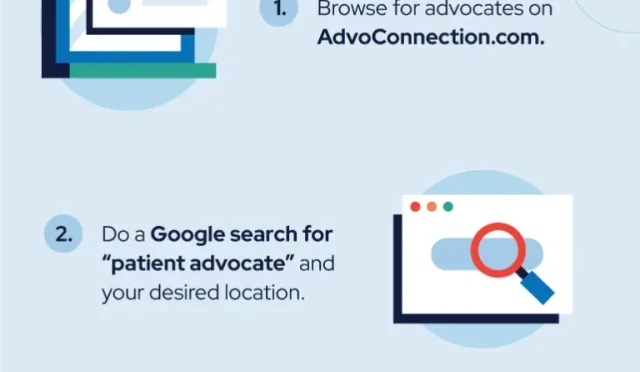Listeria in ready-to-eat sandwiches is a critical concern for consumers and food safety advocates alike. Recent recalls, particularly from Fresh & Ready Foods, highlight the risk of Listeria monocytogenes contamination in these convenient meals. Such products, which often require no cooking, pose a significant threat to health, especially among vulnerable groups. Symptoms of Listeria infection can range from mild gastrointestinal distress to severe conditions like meningitis, making awareness essential. Adopting effective food safety tips is crucial for anyone frequently consuming ready-to-eat foods to mitigate the risk of listeriosis and stay safe.
The topic of Listeria in prepared sandwiches raises important questions about food safety and public health. Known for its resilience, Listeria monocytogenes can thrive in cold environments, affecting ready-to-eat meals that appeal to busy individuals. With several high-profile listeria recalls making headlines, the need for vigilance in food consumption has never been clearer. Understanding the symptoms associated with listeriosis and implementing essential food safety practices can significantly reduce the risks when indulging in ready-to-eat options. In an era where convenience often takes precedence, recognizing potential dangers lurking in our meals is vital.
Understanding Listeria Monocytogenes
Listeria monocytogenes, the bacterium behind listeriosis, poses significant health risks, particularly in ready-to-eat foods like deli meats and sandwiches. While listeria outbreaks are less frequent compared to those from other bacteria like salmonella, they carry a high fatality risk; approximately 1600 individuals report infections annually in the U.S., leading to about 260 deaths according to the CDC. The bacteria thrive in cold environments and can survive refrigeration—a unique trait that escalates the risks associated with ready-to-eat foods.
Its resilience is alarming because listeria can form biofilms in food processing plants, making it notoriously difficult to eradicate. Consumers need to recognize that ready-to-eat foods can become breeding grounds for listeria, particularly when proper sanitation practices are neglected. As such, it is critical for food manufacturers to maintain stringent cleaning protocols, and for consumers to remain vigilant about the safer consumption of these products.
Listeria in Ready-to-Eat Sandwiches: The Recall Impact
The recent recall of various ready-to-eat sandwiches has raised serious concerns regarding food safety. The FDA announced that numerous products from Fresh & Ready Foods are potentially contaminated with listeria monocytogenes, prompting widespread consumer worry. Products affected include ham and cheese croissant sandwiches and various protein snacks, with expiry dates ranging from April to May 2025. Such recalls highlight the importance of transparency in food safety and the risks inherent in consuming pre-packaged, ready-to-eat meals.
It’s crucial for consumers to check their refrigerators for recalls related to ready-to-eat foods and to pay attention to ‘use by’ dates. The FDA’s recall provides essential information for consumers to avoid potentially harmful products, yet it underscores a larger issue within the food safety landscape. The recent cuts to FDA funding and food safety programs might raise additional alarm about the future effectiveness of food safety regulations, raising questions about the safety measures in place to prevent incidents of listeriosis.
Recognizing Listeria Symptoms: What to Look For
Understanding the symptoms of listeriosis is vital, especially for high-risk groups such as pregnant women, newborns, the elderly, and individuals with weakened immune systems. Common symptoms of listeria infection can begin mildly with nausea, vomiting, and diarrhea but can escalate to more severe issues like fever, stiffness, and even seizures. Because of this potential for rapid deterioration in health, those who believe they may have ingested contaminated food should seek medical attention promptly.
Moreover, awareness plays a critical role in prevention. Many individuals may confuse initial symptoms with other less severe foodborne illnesses, thereby delaying treatment. Creating educational initiatives to inform the public about listeria symptoms and the importance of prompt medical attention can significantly mitigate risks and improve outcomes for affected individuals.
Food Safety Tips to Prevent Listeria Infection
Food safety practices are essential in safeguarding against listeria infections. To begin with, consumers should avoid eating perishable, ready-to-eat foods past their expiration date. Keeping the refrigerator temperature at or below 40°F is also vital, as it helps slow the growth of harmful bacteria. Regular cleaning of refrigerator surfaces and careful attention to hygiene when handling food can also reduce the risk of cross-contamination.
In addition to monitoring expiration dates, individuals should steer clear of unpasteurized products, as they are particularly prone to contamination. For anyone in a high-risk category, heightened vigilance regarding food choices—particularly those like deli meats, soft cheeses, and raw sprouts—can help reduce the likelihood of listeria infection. Keeping track of leftovers and consuming them within a week is another simple yet effective strategy to minimize risks.
Handling Food Recalls: Consumer Awareness
When news of a food recall hits, it is vital for consumers to react promptly. Monitoring official sources such as the FDA website can provide critical updates on which products are deemed unsafe. Recognizing the signs of a recall and understanding how to act—such as disposing of recalled products—can drastically reduce the risk of listeria infection and other foodborne illnesses.
Consumers should also stay informed about food safety news and recalls that might affect their purchasing decisions. Many retailers provide alerts for recalls, but it’s also essential for individuals to be proactive in checking the labels of ready-to-eat foods, especially sandwich products known to have a higher risk of listeria contamination. Vigilance in this area will contribute significantly to consumer protection.
The Role of Regulations in Food Safety
Government regulations play a pivotal role in maintaining food safety across the industry. The recent cuts to inspection programs underscore potential vulnerabilities in the current food safety system. Organizations like the FDA are crucial in monitoring food safety practices, and the public needs to advocate for robust funding and resources to maintain effective oversight. The impact of regulatory deficiencies can lead to more incidents of food contamination, thus increasing health risks to consumers.
Additionally, ensuring compliance with food safety standards in manufacturing and processing environments is imperative. The implementation of rigorous inspection systems, along with regular training for food industry workers about the risks of contamination, is essential to prevent listeria spread. As the safety challenges in the food industry grow, so too must the commitment to upholding stringent food safety regulations for the protection of public health.
The Association Between Food Safety and Public Health
Food safety is intrinsically tied to public health, as demonstrated by listeriosis outbreaks. The health implications of foodborne bacteria like listeria monocytogenes extend beyond individual cases, impacting community health and well-being. When regulations fail or food recalls surge, the ripple effects can impact healthcare systems overwhelmed by listeria cases. Recognizing this connection reinforces the importance of maintaining effective food safety protocols.
Furthermore, public health initiatives focusing on food safety education can significantly empower consumers. Enhancing public awareness regarding the risks associated with ready-to-eat foods and how to properly handle food can foster a healthier society. Engaging consumers with informative resources about listeria, its symptoms, prevention tips, and the importance of recalls can contribute to a more informed populace, ultimately leading to decreased incidences of foodborne illness.
Raising Awareness on the Dangers of Ready-to-Eat Foods
With the increasing popularity of ready-to-eat foods, it is crucial to raise awareness about the potential dangers they pose, particularly regarding listeria contamination. The convenience of these products must be weighed against their safety, as items like sandwiches and pre-packaged salads could harbor harmful bacteria if not properly handled. Many consumers may inadvertently overlook the risks associated with these foods, making it essential to promote food safety education actively.
Educational campaigns can encourage consumers to understand what constitutes safe food handling practices, the significance of checking recalls, and how to identify quality food products. This awareness can drive consumers to make safer choices while shopping and prepare them to respond effectively to recalls when they are announced. Implementing such measures can drastically reduce listeria contamination rates in popular food items.
The Future of Food Safety Initiatives
Looking ahead, the future of food safety initiatives depends heavily on community engagement and government support. Advocacy for proper funding of food safety programs is essential to maintain surveillance and quality control within the food supply chain. The collaboration between manufacturers, regulatory bodies, and consumers can propel advancements in food safety standards, moving towards a safer food environment.
As society becomes more aware of the risks associated with foodborne pathogens, it will be crucial to implement progressive strategies that protect public health. Emphasizing the importance of food safety education among consumers and ensuring that manufacturers adhere to high standards can foster a culture of safety that prioritizes well-being. Collective efforts in food safety advocacy will ultimately lead to healthier communities free from the threats posed by bacteria such as listeria.
Frequently Asked Questions
What is the risk of Listeria in ready-to-eat sandwiches?
Ready-to-eat sandwiches can carry the risk of Listeria monocytogenes contamination, leading to listeriosis. This bacterium thrives in cold environments and can survive even freezing. Therefore, it’s essential to check for any recalls, especially after announcements like those from Fresh & Ready Foods.
How can I recognize Listeria symptoms after eating ready-to-eat food?
Symptoms of listeriosis usually manifest as mild nausea, vomiting, and diarrhea, but can escalate to more serious conditions like fever, fatigue, and stiffness. High-risk groups, including pregnant women and the elderly, should remain particularly vigilant about Listeria symptoms.
What should I do if my ready-to-eat sandwich has been recalled for Listeria?
If your ready-to-eat sandwich is part of a Listeria recall, such as those issued for Fresh & Ready Foods products, do not consume it. Instead, dispose of the product and contact the manufacturer for guidance on obtaining a refund or further instructions.
What steps can I take to ensure food safety against Listeria in ready-to-eat foods?
To ensure safety from Listeria in ready-to-eat foods, always check expiration dates, keep your refrigerator at 40°F or lower, practice proper kitchen hygiene, and avoid unpasteurized products. Regularly cleaning your refrigerator can also help prevent the growth of Listeria.
What are the FDA’s guidelines regarding Listeria recalls for ready-to-eat foods?
The FDA issues warnings and recalls for ready-to-eat foods like sandwiches when contamination with Listeria monocytogenes is detected. Consumers should heed these recalls, check product expiration dates, and adhere to safe food handling practices to minimize their risk.
Can I mitigate the risks of Listeria when consuming deli meats in ready-to-eat sandwiches?
Yes, you can mitigate Listeria risks from deli meats by choosing products that are labeled as cooked and ready to eat, ensuring they’re consumed before the expiry dates, and avoiding cold cuts that have been improperly stored or that are part of recent recalls.
What food safety tips can help prevent Listeria in my ready-to-eat meals?
Key food safety tips to prevent Listeria in your ready-to-eat meals include checking for recalls, cooking deli meats before consumption, avoiding unpasteurized dairy, and keeping your kitchen and refrigerator clean to inhibit bacterial growth.
How prevalent is Listeria in ready-to-eat sandwiches based on recent recalls?
Recent recalls, such as those involving Fresh & Ready Foods, highlight the prevalence of Listeria in ready-to-eat sandwiches. Though not all products are contaminated, consumers should remain cautious and follow FDA updates regarding affected products.
What is the impact of Listeria monocytogenes in ready-to-eat foods such as sandwiches?
Listeria monocytogenes can cause severe illness, especially in high-risk individuals, but its detection in ready-to-eat foods like sandwiches prompts recalls to protect public health. Awareness of this bacterium helps consumers take appropriate precautions.
Are there specific groups at higher risk for Listeria from ready-to-eat sandwiches?
Yes, individuals such as pregnant women, the elderly, and those with weakened immune systems are at higher risk for listeriosis from consuming contaminated ready-to-eat sandwiches. Special care should be taken by these groups when choosing food items.
| Key Points | Details |
|---|---|
| Recall Announcement | Fresh & Ready Foods has recalled several ready-to-eat foods, including sandwiches, due to potential listeria contamination. |
| Products Affected | Includes brands like Fresh & Ready Foods, City Point Market, and others with “use by” dates from 4/22/2025 to 05/19/2025. |
| Distribution Areas | Products were distributed in vending and break areas in corporate offices and healthcare facilities in various states. |
| Health Risks | Listeria can cause listeriosis, a serious infection that can be deadly. |
| Vulnerability | Highest risk for pregnant women, newborns, older adults, and those with weakened immune systems. |
| Prevention Tips | Avoid expired RTE foods, maintain fridge hygiene, and steer clear of unpasteurized dairy. |
| Recommended Action | If you have any recalled items, dispose of them and contact the manufacturer for a refund. |
Summary
Listeria in ready-to-eat sandwiches is a significant public health concern that has led to recent recalls due to contamination fears. Understanding listeria and its associated risks, particularly in ready-to-eat foods, is essential for consumer safety. By being vigilant—paying attention to expiration dates and practicing proper food handling—you can help protect yourself against this dangerous bacterium.
#ListeriaAlert #FoodSafety #ReadyToEatWarning #HealthAwareness #FoodContamination








